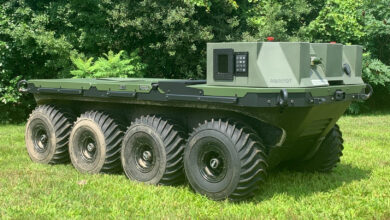US Quashes L3Harris Bid to Overturn $991M Spy Plane Deal With Sierra Nevada
L3Harris has failed to overturn the US Army’s decision to award Sierra Nevada Corporation (SNC) a $991-million contract to produce the HADES next-generation spy plane.
This comes after the US Government Accountability Office (GAO) ruled in favor of SNC to proceed with production despite a protest filed in October.
The GAO’s decision confirms that the winning vendor met all operational and regulatory requirements and that the contract award was made in full compliance with the law.
The government watchdog stated that it would soon release a final redacted version of its decision.
With the protest denial, SNC can now move forward with the contract without further legal delays.
Staying Confident
Despite the setback, an L3Harris spokesperson told Breaking Defense that the company remains confident in its offering for the US Army’s airborne intelligence, surveillance, and reconnaissance (ISR) missions.
The spokesperson emphasized that L3Harris’ proposal offers the “lowest risk” among all competitors and is the “most capable” ISR solution, citing more than 6,000 flight hours as a proof of its effectiveness.
Nonetheless, the spokesperson stated that the company will review the GAO’s decision to determine its next steps.
Conversely, SNC welcomed the GAO’s ruling and expressed pride in continuing its partnership with the US Army to deliver the “best solution” for warfighters.
“Throughout this process, we remained committed and fully confident in the superiority of our solution and the Army’s selection of SNC for the HADES contract,” said Tim Owings, SNC executive vice president for mission solutions and technologies.
About the HADES Program
The US Army began shaping the HADES, or High Accuracy Detection and Exploitation System, program in 2020 to address the growing need for a multi-domain ISR fleet.
In August, the army selected SNC to convert Bombardier’s Global 6500 business jets into state-of-the-art spy planes with enhanced geographical coverage and faster global deployment capabilities.
According to the service, the HADES aircraft will offer the speed, range, endurance, and altitude necessary for deep sensing, overcoming the limitations of legacy airborne ISR platforms.
“With exceptional payload capacity, it will offer convergence options that occur on or off-board the aircraft to cover assured, denied, or degraded communication environments,” ISR Task Force aerial chief Lt. Col. Matt Paladino noted.












